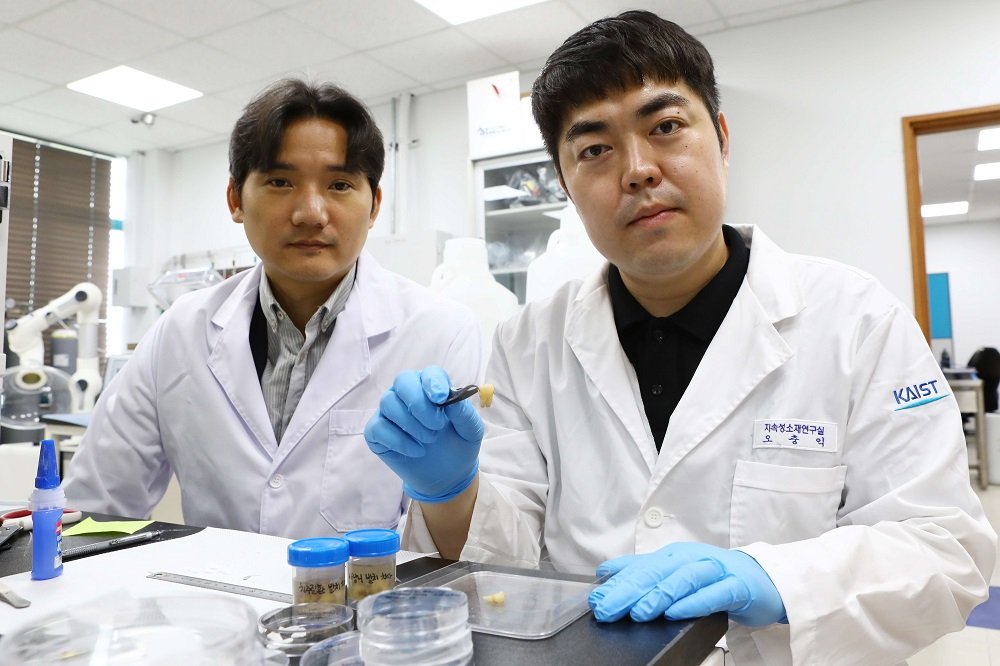Friday, 27 February 2026
Korea reveals nanoscale dental erosion from beverage consumption
This novel approach is useful for measuring mechanical and morphological changes that occur over time during enamel erosion induced by beverages Researchers at Korea Advanced Institute of Science and Technology…

This novel approach is useful for measuring mechanical and morphological changes that occur over time during enamel erosion induced by beverages
Researchers at Korea Advanced Institute of Science and Technology (KAIST) used atomic force microscopy to quantitatively evaluate how acidic and sugary drinks affect human tooth enamel at the nanoscale level.
This novel approach is useful for measuring mechanical and morphological changes that occur over time during enamel erosion induced by beverages.
AFM is a very-high-resolution type of scanning probe microscopy (SPM), with demonstrated resolution on the order of fractions of a nanometer (nm) that is equal to one billionth of a meter. AFM generates images by scanning a small cantilever over the surface of a sample, and this can precisely measure the structure and mechanical properties of the sample, such as surface roughness and elastic modulus.
The co-lead authors of the study, Dr. Panpan Li and Dr. Chungik Oh, chose three commercially available popular beverages, Coca-Cola®, Sprite®, and Minute Maid® orange juice, and immersed tooth enamel in these drinks over time to analyze their impacts on human teeth and monitor the etching process on tooth enamel.
The researchers observed that the surface roughness of the tooth enamel increased significantly as the immersion time increased, while the elastic modulus of the enamel surface decreased drastically.
It was demonstrated that the enamel surface roughened five times more when it was immersed in beverages for 10 minutes, and that the elastic modulus of tooth enamel was five times lower after five minutes in the drinks.
Additionally, the research team found preferential etching in scratched tooth enamel. Brushing your teeth too hard and toothpastes with polishing particles that are advertised to remove dental biofilms can cause scratches on the enamel surface, which can be preferential sites for etching, the study revealed.
This work was supported by the National Research Foundation (NRF), the Ministry of Science and ICT (MSIT), and the KUSTAR-KAIST Institute of Korea.
Technology
Ingredion Thailand Achieves 100% Sustainably Sourced Cassava
Feb 27, 2026 | Company News
Deakin University and Bellarine Foods Partner to Develop Sustainable Marine-Derived Proteins
Feb 26, 2026 | Australia
Royal Unveils Refreshed Jute Bag Design for 20lb Authentic Basmati
Feb 25, 2026 | Company News
Food Testing
Australian Medical Bodies Push for Compulsory Health Star Labelling
Feb 24, 2026 | Australia
Tim Hortons Singapore Secures Majlis Ugama Islam Singapura Halal Certification Ahead of Ramadan
Feb 23, 2026 | Company News
More Popular
Fagron Acquires Pharmavit Europe for €68Mn to Expand Nutraceutical Portfolio
Feb 27, 2026 | Company News
Arla Foods Invests EUR 300Mn in New Cheese Dairy in Sweden
Feb 27, 2026 | Company News
Beyond Meat Broadens Portfolio Beyond Protein with Sparkling Plant-Based Drink Line
Feb 27, 2026 | Beverages






